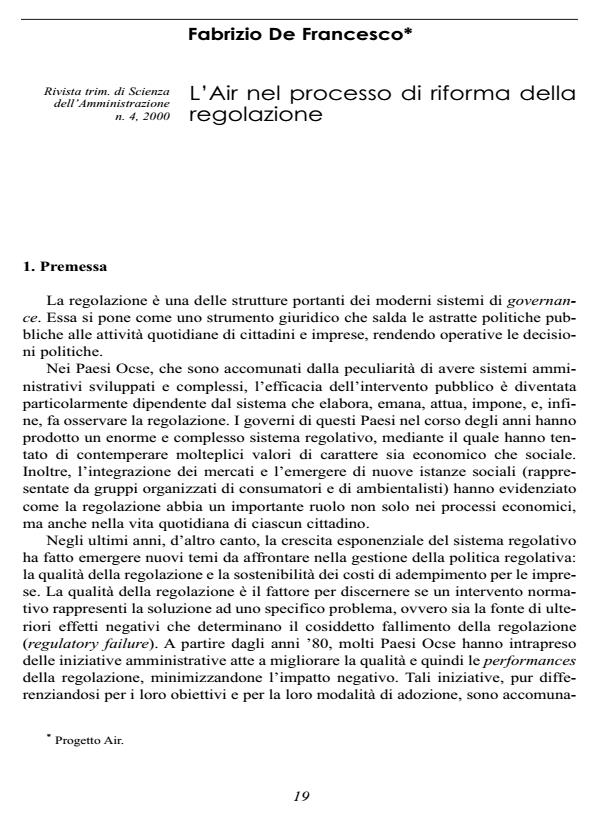L'Air nel processo di riforma della regolazione
Titolo Rivista RIVISTA TRIMESTRALE DI SCIENZA DELL’AMMINISTRAZIONE
Autori/Curatori Fabrizio De Francesco
Anno di pubblicazione 1 Fascicolo 2000/4
Lingua Italiano Numero pagine 28 P. Dimensione file 124 KB
DOI
Il DOI è il codice a barre della proprietà intellettuale: per saperne di più
clicca qui
Qui sotto puoi vedere in anteprima la prima pagina di questo articolo.
Se questo articolo ti interessa, lo puoi acquistare (e scaricare in formato pdf) seguendo le facili indicazioni per acquistare il download credit. Acquista Download Credits per scaricare questo Articolo in formato PDF

FrancoAngeli è membro della Publishers International Linking Association, Inc (PILA), associazione indipendente e non profit per facilitare (attraverso i servizi tecnologici implementati da CrossRef.org) l’accesso degli studiosi ai contenuti digitali nelle pubblicazioni professionali e scientifiche.
The rise of the regulatory state has constrained many European and OECD countries to set up policy tools aimed at governing regulation. Indeed, since the need of social regulation has never been under discussion as a way to protect public interest, governments have focused on improving the quality of regulation. Regulatory Impact Analysis (RIA) is a decision tool that systematically assesses the negative and positive impacts of proposed and existing regulation. It is a method that supports the decision-making process without aiming to substitute decisions with technocratic tools, enhancing the empirical basis of decisions. In order to communicate information to decision-makers, it takes the form of a short and structured document. This policy making tool has the high potential to cope with the issue of the lack of legitimacy and credibility of regulators, enhancing accountability and transparency of the regulatory process. However, it is only one element of regulatory reform; implementation of RIA needs specific preconditions, i.e. the public management reform, deregulation, and an efficient competition law. This article argues that implementation of RIA is not an easy task, since there are many bias that determine the effectiveness and evolution of this policy tool. Nevertheless, RIA is a dynamic tool, with regard to deregulation, avoidance of unnecessary rules, regulatory quality, and to some extent regulatory management.
Fabrizio De Francesco, L'Air nel processo di riforma della regolazione in "RIVISTA TRIMESTRALE DI SCIENZA DELL’AMMINISTRAZIONE" 4/2000, pp , DOI: